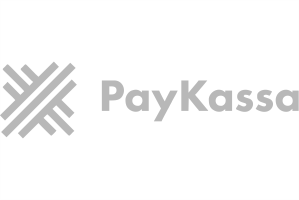| Name of service | Bronze | Silver | Gold | Platinum | Brilliant |
|---|---|---|---|---|---|
 Company name verification and reservation Verifying the availability and reserving of your preferred company name in the registry
Company name verification and reservation Verifying the availability and reserving of your preferred company name in the registry
|

|

|

|

|

|
 Obtaining an Investment Registration Certificate (IRC) Production of an International Investment Registration Certificate (IRC)
Obtaining an Investment Registration Certificate (IRC) Production of an International Investment Registration Certificate (IRC)
|

|

|

|

|

|
 Company registration (LLC) including government fees Preparation and submission of all required documents and fees to the relevant government authorities for company registration, ensuring a streamlined process for our clients
Company registration (LLC) including government fees Preparation and submission of all required documents and fees to the relevant government authorities for company registration, ensuring a streamlined process for our clients
|

|

|

|

|

|
 Certificate of incorporation Provision of international standard certificate of incorporation for your company
Certificate of incorporation Provision of international standard certificate of incorporation for your company
|

|

|

|

|

|
 A set of statutory documents of the company in electronic form Preparation of a comprehensive package of incorporation documents for any form of company ownership in electronic form
A set of statutory documents of the company in electronic form Preparation of a comprehensive package of incorporation documents for any form of company ownership in electronic form
|

|

|

|

|

|
 Authorized capital contribution Assistance in registering the authorized capital of your company for successful incorporation
Authorized capital contribution Assistance in registering the authorized capital of your company for successful incorporation
|

|

|

|

|

|
 Company seal Production of the company seal
Company seal Production of the company seal
|

|

|

|

|

|
 Local director for one (1) month Providing a local Vietnam resident director for successful company registration and opening a bank account
Local director for one (1) month Providing a local Vietnam resident director for successful company registration and opening a bank account
|

|

|

|

|

|
 Assistance in opening a corporate bank account in the Asian payment system Collection, processing and filing of the documents required for opening a corporate account with a payment system, including consultation of appropriate jurisdiction
Assistance in opening a corporate bank account in the Asian payment system Collection, processing and filing of the documents required for opening a corporate account with a payment system, including consultation of appropriate jurisdiction
|

|

|

|

|

|
 Assistance in opening a corporate bank account in local bank (VietinBank, Vietcombank) Collecting, processing and filing the necessary documents for opening a corporate account with a local bank
Assistance in opening a corporate bank account in local bank (VietinBank, Vietcombank) Collecting, processing and filing the necessary documents for opening a corporate account with a local bank
|

|

|

|

|

|
 Assistance in opening a personal bank account Collection, processing and filing of the documents required to open a personal account, including consultation of appropriate jurisdiction
Assistance in opening a personal bank account Collection, processing and filing of the documents required to open a personal account, including consultation of appropriate jurisdiction
|

|

|

|

|

|
 Apostilled and Translated company documents Apostille certification and consular legalization of documents, depending on the country of operation
Apostilled and Translated company documents Apostille certification and consular legalization of documents, depending on the country of operation
|

|

|

|

|

|
 Free consultation We offer a free consultation where you can discuss your needs and questions regarding company registration and management. Our experts will be happy to help you understand the process and provide guidance based on your situation. We are happy to answer your questions and help you make an informed decision about the services you need
Free consultation We offer a free consultation where you can discuss your needs and questions regarding company registration and management. Our experts will be happy to help you understand the process and provide guidance based on your situation. We are happy to answer your questions and help you make an informed decision about the services you need
|

|

|

|

|

|
|
Total cost
|
5600 USD | 6900 USD | 7900 USD | 9400 USD | 10500 USD |
|
Provision of a legal address for 1 (one) year
|
1700 USD | 1700 USD | 1700 USD | 1700 USD | 1700 USD |
|
Remote company registration with transfer of authority
|
300 USD | 300 USD | 300 USD | 300 USD | 300 USD |
|
Accounting services
|
250 USD | 250 USD | 250 USD | 250 USD | 250 USD |





















